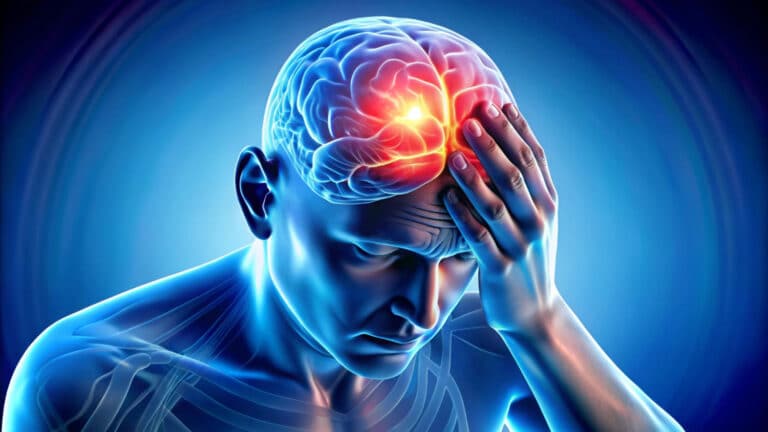Understanding Encephalopathy: Types, Symptoms, and Treatments
What is Encephalopathy?
Encephalopathy is a broad term used to describe any disorder or disease affecting brain function. It often leads to altered mental status, memory loss, or behavioral changes. Prompt identification and treatment of the underlying causes are crucial to prevent complications.
Overview of Encephalopathy
Encephalopathy can manifest in various forms depending on its cause. It ranges from reversible metabolic imbalances to irreversible structural brain damage. Understanding its classification helps guide appropriate treatment strategies.
| Type of Encephalopathy | Causes | Symptoms |
| Metabolic Encephalopathy | Liver or kidney failure, systemic diseases | Confusion, lethargy, coma |
| Hepatic Encephalopathy | Advanced liver disease, toxin buildup | Cognitive impairment, confusion |
| Toxic and Metabolic Encephalopathy | Exposure to toxins, infections, drugs | Agitation, hallucinations, decreased alertness |
| Chronic Traumatic Encephalopathy (CTE) | Repeated head trauma | Cognitive decline, mood disorders |
| Transmissible Spongiform Encephalopathies | Prion proteins (e.g., Creutzfeldt-Jakob disease) | Rapid mental deterioration, motor dysfunction |

Common Types of Encephalopathy
Metabolic Encephalopathy
Occurs when chemical processes in the body are disrupted, leading to symptoms like confusion and disorientation. Common causes include kidney or liver failure.
Hepatic Encephalopathy
A complication of severe liver disease, hepatic encephalopathy results from toxins accumulating in the bloodstream and affecting brain function.
Toxic and Metabolic Encephalopathy
Results from exposure to toxins or metabolic imbalances. Symptoms include agitation and hallucinations.
Chronic Traumatic Encephalopathy (CTE)
Linked to repeated head trauma, often seen in athletes, leading to cognitive and mood-related symptoms.
Transmissible Spongiform Encephalopathies
A group of rare, progressive brain disorders caused by prion proteins. A well-known example is Creutzfeldt-Jakob disease.
Causes and Symptoms of Encephalopathy
Encephalopathy may stem from various sources such as infections, toxins, or systemic diseases. Common symptoms include confusion, lethargy, and decreased alertness. Severe cases can lead to seizures or coma. For conditions like hepatic encephalopathy, symptoms are tied to liver dysfunction, while toxic encephalopathy arises from exposure to harmful substances.
| Diagnostic Test | Purpose |
| MRI and CT Scans | Detects structural abnormalities |
| EEG | Monitors electrical activity in the brain |
| Lumbar Puncture | Analyzes cerebrospinal fluid for infections |
| Blood Tests | Identifies metabolic or toxic abnormalities |
Diagnostic Procedures
A comprehensive diagnosis of encephalopathy includes:
- MRI and CT Scans: Used to detect structural changes in the brain.
- EEG: Measures abnormal electrical activity.
- Lumbar Puncture: Helps identify infections or pressure changes.
- Blood Tests: Determines metabolic or toxic causes.

Treatment and Management Options
Treatment focuses on addressing the root cause. For hepatic encephalopathy, this might involve reducing blood ammonia levels. Toxic and metabolic encephalopathy often require removal of the toxin or correcting metabolic imbalances. Supportive therapies like cognitive therapy and physical therapy can aid in recovering lost function.
Encephalopathy in Newborns
Newborns can suffer from hypoxic-ischemic encephalopathy due to oxygen deprivation during birth. Early intervention is essential to minimize long-term developmental issues.
Preventing Encephalopathy
Prevention varies depending on the type of encephalopathy. For hepatic encephalopathy, maintaining liver health is crucial, while avoiding exposure to toxins can prevent toxic encephalopathy. Regular monitoring and early intervention are key strategies.
Encephalopathy vs. Encephalitis: Key Differences
While encephalopathy affects brain function due to various causes, encephalitis involves inflammation of the brain, typically from a viral infection. Recognizing these differences is essential for effective management and treatment.
| Feature | Encephalopathy | Encephalitis |
| Definition | General brain dysfunction caused by various factors | Inflammation of brain tissue, usually due to infections |
| Causes | Metabolic imbalances, toxins, organ failure, trauma | Viral infections (e.g., herpes), autoimmune responses |
| Symptoms | Confusion, memory loss, altered behavior | Fever, severe headache, seizures, neurological deficits |
| Diagnosis | MRI, CT scan, EEG, lumbar puncture | MRI, CT scan, cerebrospinal fluid analysis |
| Treatment | Treat underlying cause (e.g., detoxification, metabolic correction) | Antiviral medications, anti-inflammatory drugs, supportive therapy |
| Prognosis | Varies depending on cause and severity | Can lead to permanent neurological damage if not treated promptly |
| Prevention | Avoiding toxins, managing chronic conditions | Vaccinations, preventing viral infections |
Frequently Asked Questions (FAQs)
Is encephalopathy life-threatening?
Encephalopathy can indeed be life-threatening, depending on its underlying cause and severity. Some forms, such as hepatic encephalopathy or septic encephalopathy, require immediate medical intervention, as they can lead to coma or even death if untreated. Prompt diagnosis and treatment are crucial to manage symptoms and improve outcomes
Is encephalopathy a disability?
Encephalopathy can be considered a disability if it results in cognitive, physical, or neurological impairments that affect a person’s daily functioning. Depending on its type and impact, individuals with encephalopathy may qualify for disability support or benefits.
What are the symptoms of toxic encephalopathy?
Symptoms of toxic encephalopathy may include memory loss, confusion, fatigue, difficulty with concentration, mood changes, and, in severe cases, seizures or coma. These symptoms arise due to exposure to toxins that disrupt brain function, making early detection and treatment essential.
What is the life expectancy of someone with encephalopathy?
Life expectancy for someone with encephalopathy varies widely based on the type, cause, and response to treatment. For some, encephalopathy can be managed effectively, while others with severe or progressive forms may face a shorter life expectancy.
